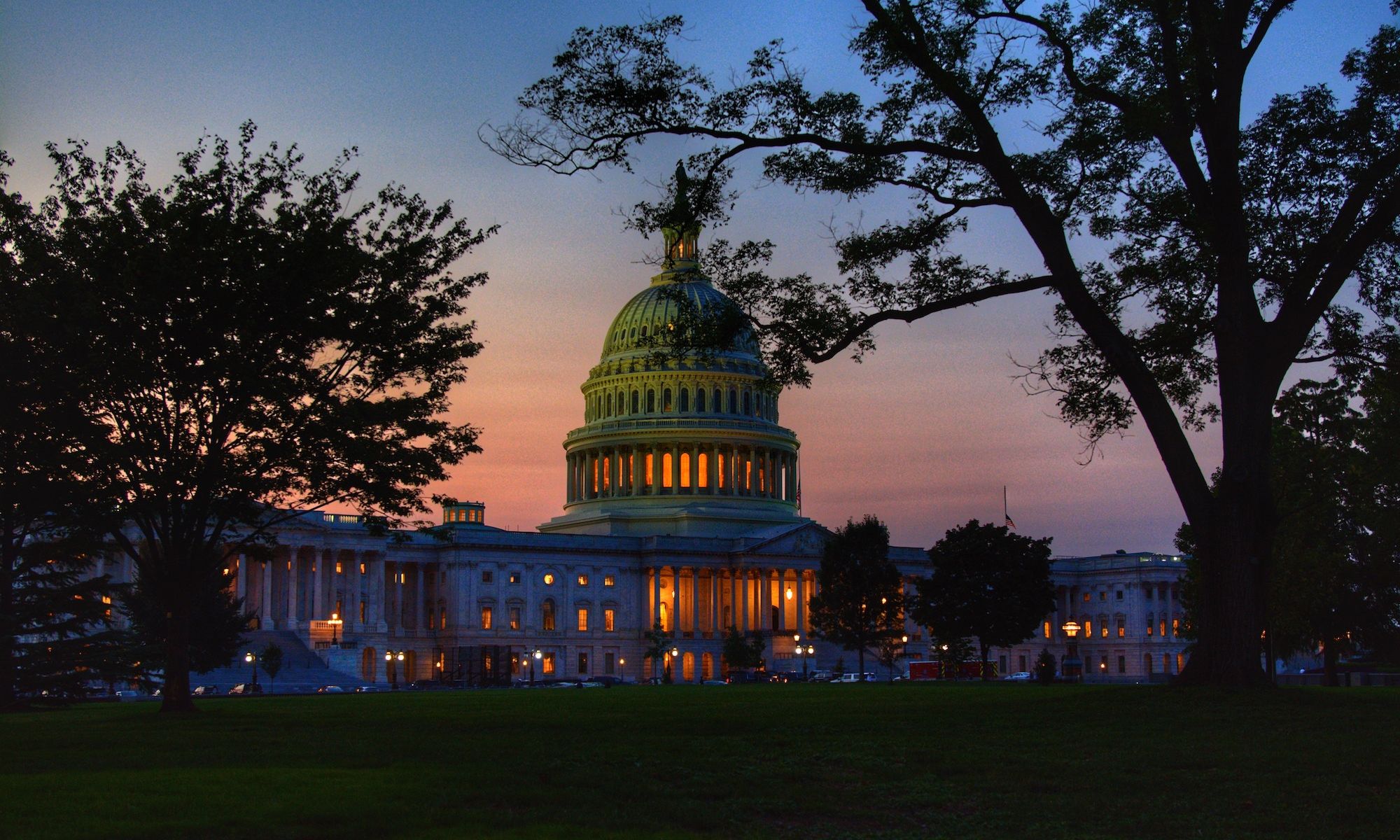The US Capitol in Washington, DC Photo by MIKE STOLL on Unsplash
A coalition of organisations representing writers, performing and visual artists and others involved in social justice issues is setting aside 2 October as a day to call on the US Congress to enact a law that would ban corporations from copyrighting art created with significant artificial intelligence-enabled elements.
The coalition behind AI Day of Action consists of six groups—including the Freelancers Union, United Musicians and Allied Workers, Media Alliance, RootsAction, Open Markets Institute and Fight for the Future—and is asking its members and the public to phone or email their members of Congress to “block corporations from being able to obtain copyright registration for content largely created through AI rather than through artists”, according to Lia Holland, campaign director for Fight for the Future, which is based in California.
The US Copyright Office has ruled on several occasions, most recently in 2022, against copyright registration of visual imagery that was not produced by a human, and its guide policies and procedures (The Copyright Office Compendium) explicitly states that “works produced by a machine or mere mechanical process that operates randomly or automatically without any creative input or intervention from a human author” are not eligible.
Trying to circumvent this policy, Holland notes that film studios, for instance, “want to hire AI to write a script and then hire a writer to clean up the script, which results in the human being paid less, but the studios believe that this is enough human content to get copyright”. She referred to this process as “human-washing”.
The recent growth in the use of computer-controlled programmes and robots to perform tasks commonly associated with intelligent beings has become a source of wonder and worry among people who are concerned that their jobs will be replaced by digital programmes. Visual artists have complained about their copyrighted material, available to be seen online, being scooped up and repurposed by AI systems, and writers—particularly unionised film and television writers, whose just-resolved contract negotiations revolved in part around the use of AI—have foreseen an environment in which they are replaced or not given full credit for their work.
The federal government is seeking to fashion rules of the road for this still-evolving technology. Hearings on the subject of artificial intelligence and copyright held by the Senate Judiciary Subcommittee on Intellectual Property and chaired by Connecticut senator Richard Blumenthal took place between May and July, with written and oral testimony provided by tech entrepreneurs, business leaders, lawyers, artists and others. The US Copyright Office also has asked for public comment on whether legislative and regulatory steps are warranted and, on 4 October, two days after the AI Day of Action, the Federal Trade Commission staff will host a virtual roundtable discussion on the impact of generative artificial intelligence on the arts.
The claims for artificial intelligence, especially generative artificial intelligence, to improve many facets of modern life are great. Goldman Sachs research predicts that generative AI—artificial intelligence capable of producing new text, audio, images and other media rather than simply performing certain tasks faster, as earlier iterations of AI are able to do—could raise global gross domestic production by 7%, creating new jobs while eliminating others. In fine art, generative AI has been used in efforts to determine an artwork’s authenticity and value and, for individual artists, “as virtual collaborators, assisting artists in creating artworks of unique aesthetic value”.
At the recent hearings held by the Senate Judiciary Subcommittee, Samuel Altman, chief executive of OpenAI, recommended the establishment of a new federal agency responsible for licensing AI models according to specific safety standards and monitoring certain AI capabilities. Christina Montgomery, chief privacy and trust officer at IBM, did not support the idea of regulating the technology itself but suggested a “precision regulation” approach, focusing on specific use cases and addressing risks, similar to proposals currently being debated within the European Union.
An artist who testified before the subcommittee in July, Karla Ortiz, claimed that “so-called artificial intelligence systems depend entirely on vast quantities of copyrighted work made by human creators like me”. “Generative AI is unlike any tool that has come before, as it is a technology that uniquely consumes and exploits the innovation of others,” she added. “I am no longer certain of my future as an artist.”
Ortiz was one of three litigants in a lawsuit filed earlier this year charging the London-based company, Stable AI Ltd. and its US-based affiliate Stable AI, Inc., with copyright infringement for downloading perhaps millions of copyrighted images from various sources on the internet—a process called “web scraping”—and then storing those images as compressed (or “diffused”) copies that are made available to users of these AI programs to create other images. Some of these images are licensed by other online companies, Midjourney and Deviant Art, both of which also were named in the lawsuit. (A separate copyright infringement lawsuit has been filed in London against Stable AI by Getty Images, a visual media company and supplier of stock images, editorial photography, video and music for business and consumers with a library of over 477 million assets.)
Another person who testified before the Senate subcommittee, lawyer John Silverberg, founder of the New York City-based Intellectual Property Group, stated that “the copyright law is not an effective tool for visual artists who wish to protect their work from ingestion for machine learning for generative AI platforms” because of the cost of litigation, the relatively low damage awards for copyright infringement and the difficulty in tracking where one’s images have been scraped from the internet and how they have been used. He recommended that Congress “enact collective licensing solutions, so that authors get paid for the potential ingestion of their material for machine learning for AI platforms”.

